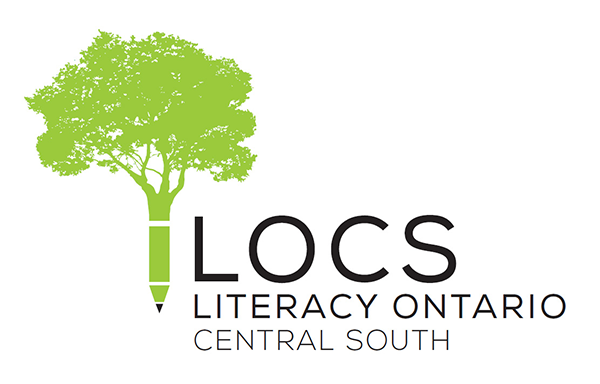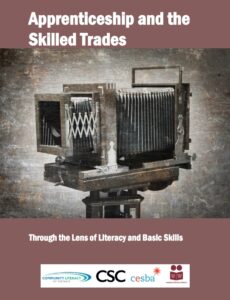Through the Lens of Literacy and Basic Skills
To address the developing skilled trades crisis, a crisis that has been created by “pending retirements, a current shortage of certified tradespeople and low apprenticeship completion rates”, communities will need to work together to support those interested in a career in the skilled trades. This means creating a support system that provides individuals with every opportunity to be successful.
This report highlights the key role Literacy and Basic Skills (LBS) plays in supporting individuals, as well as the role LBS has in the larger apprenticeship network. LBS works with community partners, including trainers and employers, to support all parts of the apprenticeship system.
Supporting Individuals
It is important that communities support people entering the skilled trades from high school and through immigration. It is also important that we have supports in place for individuals who:
- have been out of school a while and are reentering the workforce
- are currently working in other positions, but would like to enter the trades
- are working in a skilled trade, but are at risk of leaving
- have left the trades, but would consider returning
- are not considering the trades because of barriers (this includes access for underrepresented groups)
As this report highlights, LBS programs play a critical role in supporting the success of individuals in each of these situations.
This group makes up a significant pool of workers who have the potential to help communities address the skilled trades crisis. For many, success in the skilled trades will start with support offered by LBS programs.
LBS Supports
This report outlines the LBS support available, which includes “foundational and advanced math, interpersonal and soft skills, writing, communication, and digital skills”. Adult training programs also prepare learners for the in-class portion of their Apprenticeship, as well as developing study and test taking skills, which includes preparing to write their Certificate of Qualification (C of Q). LBS can also help individuals obtain the academic requirements they need to enter the trade they are pursuing (e.g., Grade 12 and ACE). Literacy and Basic Skills programs support learners “as they work towards achieving the levels of education needed by the Ministry of Labour, Training and Skills Development, employers, and unions.”
This report also highlights something “Literacy and Basic Skills (LBS) practitioners have long recognized that having a high school diploma or equivalent doesn’t necessarily mean that your skills are at a Grade 12 level – and that not having a high school diploma doesn’t mean you are unskilled.”
LBS can meet the needs of adult learners by offering short-term, targeted programs customized to the needs of their career goal. LBS programs are flexible, self-paced and teacher supported. One-to-one tutoring is also available. Programs are also offered through partnerships with employers and pre-apprenticeship programs.
This research also identified some of the non-academic barriers people face. Support for this group may include learning about the options in the trades so they can make a decision, finding the resources to help access the apprenticeship system and funding options, as well as developing the skills to manage stress, work, school and life responsibilities. LBS has a reputation for being able to access their network of community partners, including Employment Services, to find support for learners.
Going Forward
LBS will continue supporting individual apprentices and highlighting our role as a key partner in strengthening a community wide response to building a path to apprenticeship that is well supported and seamless.
This report was released March 2022. It was researched and written by Community Literacy Ontario in partnership with Laubach Literacy Ontario (LLO), The Ontario Association of Adult and Continuing Education School Board Administrators (CESBA) and the College Sector Committee for Adult Upgrading (CSC). Full Report: Apprenticeship and the Skilled Trades





